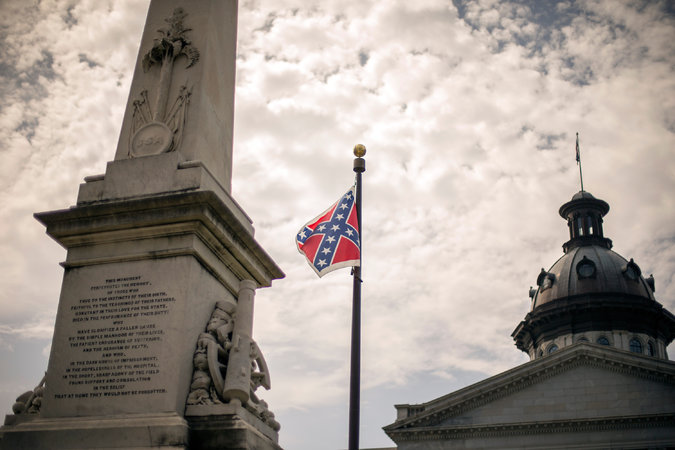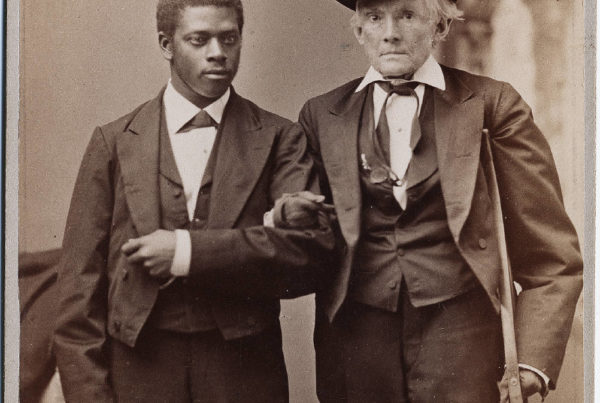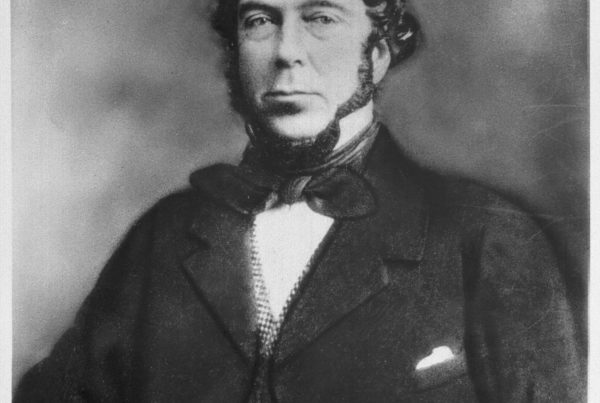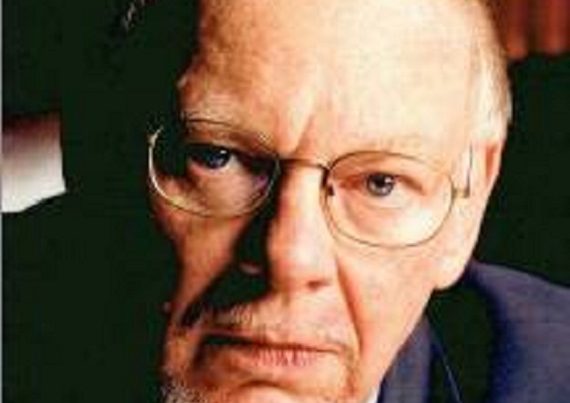Statement of College and University Professors in Support of the Confederate Battle Flag Atop the South Carolina Statehouse, drafted just before the legislative “compromise.”
To the General Assembly and People of South Carolina:
Certain academics have issued a statement on the cause of the Civil War as it relates to the controversy over the Confederate battle flag. They held a press conference on March 31 for the purpose of avowing on their authority as professional historians that the flag represents only the evil waging of war against the United States in defense of slavery and not an honorable heritage as most South Carolinians believe.
We consider that statement misleading in its content and an inappropriate intrusion of supposed academic expertise into a political controversy. Their statement reduced to essentials declares that the people of South Carolina are suffering from ignorance and delusions about their history and must be corrected by the superior wisdom of these professors.
This is presumptuous under any circumstances, but especially so when it attempts to settle a public question by declaring as gospel truth what is in fact a highly debatable historical interpretation.
There are no immutable truths in secular history. History is human experience and may be viewed always from many different perspectives. Indeed, it is a truism that historical interpretations are always changing. This is especially so in regard to an event as huge and complex as the War for Southern Independence of 1861-1865. a war in which an estimated one quarter of the white men of South Carolina lost their lives and in which we suffered invasion and devastation, aimed with malice aforethought at civilians, unprecedented in American history. Devastation which brought suffering and death to black as well as white South Carolinians.
It should be an elementary lesson in historical scholarship that so immense and revolutionary an event as the War has no one single and simple explanation or cause. The primary social value of the study of history is developing the ability to see different sides of a question, an ability needed for wise and temperate citizenship and which is available to all, not just to “experts.” This balance is conspicuously absent in the statement we contradict.
The anti-flag historians appear to be unaccustomed to having their ex-cathedra declarations of truth challenged. This in itself shows an inappropriate attitude towards historical knowledge, which is, properly understood, the product of evolving debate. And if their interpretation is to be accepted as official public truth, as they wish, then it will require not only the suppression of the Confederate flag but of almost every tradition, memorial, and monument celebrating the history of South Carolina. In effect it requires the people of South Carolina to accept the judgment that their heritage is shameful and should be erased. And who can doubt that the removal of the flag would be followed by further demands to conform public displays to the official historical “truth.”
The scholars we contradict violate another elementary rule of scholarship by asserting that sweeping historical judgments may be established by cutting and pasting snippets of quotations. To the contrary, such judgments are justified only by deep knowledge of the context. They quote some Confederate statements that secession was undertaken solely for the defense of slavery. Yes, Confederate leaders said some of the words attributed to them. They also said a great many other things during the course of the War and the years of political strife that preceded it. We have attached to our statement, to show how the game is played, our own collection of snipped quotations on the causes of the War.
It is quite true that anticipation of federal interference in local affairs after the unprecedentedly one-sided administration took office in 1861 was one of the reasons the Southern States sought to regain the independence their fathers and grandfathers had won in the American Revolution. Indeed, their fathers had declared that governments rest on the consent of the governed, who may alter or abolish them. To say that differing opinions in regard to the longstanding institution of domestic slavery were involved in the conflict is not the same thing as proving that the War was caused solely by slavery.
A historical generalization that we can make confidently from the evidence is that opposition to slavery before and during the War did not rest upon benevolence toward African-Americans, nor did it provide any sincere or realistic program for their freedom and integration into American life as citizens. We know that racism was pervasive in the North, even among that minority who sincerely opposed slavery. Indeed, the great French observer, Tocqueville, found racism stronger in the North than in the South.
Our seceding forebears knew perfectly well that the agitation over slavery was hypocritical and self-interested and that its chief motivating factor was resentment that Southern society provided skilled and determined opposition to the desire to turn the United States into a centralized pro-business state. When the South seceded the Northern majority immediately enacted high tariffs, a national bank system, land giveaways and business subsidies as national policy, long before emancipation was adopted (as a war measure).
More importantly, though the desire to defend a longstanding way of life from outside interference was a partial cause of secession, slavery did not cause the War. The invasion and conquest of Southern States and the destruction of their legal and democratically-elected governments was justified by the desire to preserve the Union, as was stated repeatedly by Lincoln. There is evidence that many of the soldiers fighting for the Union felt angered and betrayed by the emancipation proclamation (which did not, however, free any slaves.
Had Southerners been motivated solely by the desire to preserve slavery they would hardly have chosen secession since slavery was securely protected under the Constitution. Lincoln avowed repeatedly that he had no intention to interfere with slavery in the States and was willing to accept what could have become the Thirteenth Amendment—a permanent guarantee of slavery. It is also clear that Lincoln and most of his supporters did not believe in racial equality and that his preferred solution to the racial problem was to ship the African-Americans away, and short of that to leave them to “root hog or die.”
A reasonable interpretation of secession is that Southerners left the Union because they saw an inveterate hostility toward their society, culture, political heritage, and economic interests, which promised endless irritation and strife in a Union which their fathers had founded in a spirit of harmony. In no way did secession threaten democratic government. Rather the contrary is true, as detached foreign observers nearly unanimously observed at the time.
It is relevant that the Confederate government late in the War made an offer of emancipation to European governments in exchange for help in winning Southern independence and was enlisting black Southern volunteers. At the time of secession, James H. Thornwell, probably the most influential clergyman in South Carolina and a strong believer in Southern independence, outlined a program for an evolutionary emancipation.
It is clear to those who have studied the record and not relied on recent Hollywood for their understanding of the War, that the War was fought by the Southern people honorably against overwhelming odds and ruthless tactics with skill, courage, and proportionate suffering not equaled by any other group in American history. (Except for Native Americans whose extermination was underway by the same federal government that invaded the South.) Those of us who arc descended from these people are justifiably proud of a great heritage.
In fact, respect for the Confederate heritage, until very recent political agitation, was a near universal American sentiment. The Confederate battle flag was carried by fighting men in World War II, Korea, and Vietnam. The display of our flag has been officially supported by the organized descendants of Union veterans. Shelby Foote, the greatest historian of the War, has publicly endorsed leaving our flag alone, a weight of authority greater than many ordinary historians put together.
We deny that the statement we criticize contains unquestionable historical “truth” and undisputed consensus of experts. Along with the natives there are many signers who come from the Northern part of the country, where the brutal invasion and conquest of the Southern States has long been justified by the myth that it was motivated by righteous idealism in behalf of the oppressed. This myth is what the great Southern writer Robert Penn Warren called a pernicious “Treasury of Virtue.” The adoption of this myth by so many of our professors indicates a sad conquest of our minds.
The anti-flag professors discount the “Lost Cause,” which means they believe that everything said by Southerners after the War about the conflict was a deceitful rationalization and everything said by Northerners was a pure truth.
Those scholars’ statement does not represent historical “truth.” It represents the currently fashionable interpretation in prestigious northern institutions and their imitators (institutions which are dubious guides for the people of South Carolina on this as on other public matters). If there is any lesson to be drawn it is not that our flag is shameful but that our institutions are in a sadly colonial condition. This is all the more true when we reflect that several pro-lessors, some very distinguished, who agreed with our statement, declined to sign in fear of future professional reprisals. With that reality in mind, we have declined to use the names of a number of young, untenured professors who support our statement.
Indeed, the conformity of opinion that was expressed in a pseudo-official press conference (held in the South Caroliniana Library amongst the portraits, busts, and written records of South Carolina heroes) is a far cry from the lively debate and dispute that should characterize institutions of higher learning. The putting forth of unquestionable historical interpretations is quite obviously a dangerous tendency in a democracy.
The signers below were gathered in a short time. They are not all historians but represent a variety of humane fields, which may allow them a broader perspective than that of historians obsessed with the history of racial strife. (Most of the signers of the anti-flag statement are not specialists in Civil War history.) All of the signers below hold doctoral degrees and most are professors in institutions of higher learning. While many of the signers from other States are South Carolina natives and/or holders of degrees from our institutions, a number of them are northern born.
Even if the anti-flag professors’ interpretation of the cause of the War for Southern Independence were entirely correct it would be irrelevant to the present controversy. To argue, as they do, that the present form of the flag was never flown over the capitol during the War is to make only a trivial point. Many forms of banners were used at that lime. The battle flag in its now familiar form is understood all over the world, form Helsinki to Timbuktu, as the symbol not only of the Confederacy but also of the American South.
As such, it represents not only the Civil War, but all three and a half centuries of a unique and admirable Southern culture. It also represents around the world a symbol of gallant defiance of authoritarian governments. In that use it has been often displayed in recent years in European countries escaping from communist captivity.
The controversy is no longer a mere housekeeping matter for South Carolina. The fact is that the nationalization of the issue has made our flag the symbol to millions of Americans of a last stand against Political Correctness and increasingly uniform and dictated views of our history. And, finally, racial reconciliation is best sought by the mutual understanding of black and white South Carolinians, not by the distortion or suppression of Southern heritage.
Quotations
“The North, it seems, have no more objections to slavery than the South have.” John Stuart Mill, 1861
“The Northern onslaught upon slavery was no more than a piece of specious humbug designed to conceal its desire for economic control of the Southern states.” Charles Dickens, 1862
“Resolved, that the several States composing the United States of America, are not united on the principle of unlimited submission to their General Government.” Thomas Jefferson, 1798
“Our present condition, achieved in a manner unprecedented in the history of nations, illustrates the American idea that governments rest upon the consent of the governed, and that it is the right of the people to alter or abolish governments whenever they become destructive of the ends for which they were established.” Jefferson Davis, inaugural address as President of the Confederate States, 1861
“I deemed that you were fighting the battles of our liberty, our progress, and our civilization; and I mourn for the stake which was lost at Richmond more deeply than I rejoice over that which was saved at Waterloo.” British historian of liberty Lord Acton to Gen. R. E. Lee, 1866
“Although the South would have preferred any honourable compromise to the fratricidal war which has taken place, she now accepts in good faith its constitutional results, and receives without reserve the amendment which has already been made to the constitution for the extinction of slavery. This is an event that has long been sought, though in a different way, and by none has it been more earnestly desired than by citizens of Virginia.” Gen. R.E. Lee, 1866
“Any people anywhere, being inclined and having the power, have the right to rise up and shake off the existing government, and form a new one that suits them better. This is a most valuable, a most sacred right —a right which we hope and believe is to liberate the world. Nor is this right confined to cases in which the whole people of an existing government may choose to exercise it. Any portion of such people, that can, may revolutionize, and make their own so much of the territory as they inhabit.” Abraham Lincoln, 1848
“What then will become of my tariff?” Abraham Lincoln to Virginia peace delegation, March 1861
“Slavery is likely to be abolished by the war power and this I and my friends are in favor of, for slavery is but the owning of labor and carries with it the care of the laborers, while the European plan, led on by England, is that capital shall control labor by controlling wages. The great debt that capitalists will see to it is made out of the war must be used as a means to control the volume of money.” Private circular of Northern banker, late 1861
“If I could save the Union without freeing any slave I would do it, and if I could save it by freeing all the slaves I would do it; and if I could save it by freeing some an leaving others alone I would do that. What I do about slavery, and the colored race, I do because I believe it helps to save the Union, and what I forbear, I forbear because I do not believe it would help to save the Union.” Abraham Lincoln to Horace Greeley, August 22, 1862
“It must be admitted, truth compels me to admit … Abraham Lincoln was not, in the fullest sense of the word, either our man or our model. In his interests, in his associations, in his habits of thought, and in his prejudices, he was a white man. He was preeminently the white man’s president, entirely devoted to the welfare of white men. He was ready and willing at any time during the last years of his administration to deny, postpone, and sacrifice the rights of humanity in the colored people, to promote the welfare of the white people of his country.” Frederick Douglass, noted African-American leader, 1876







